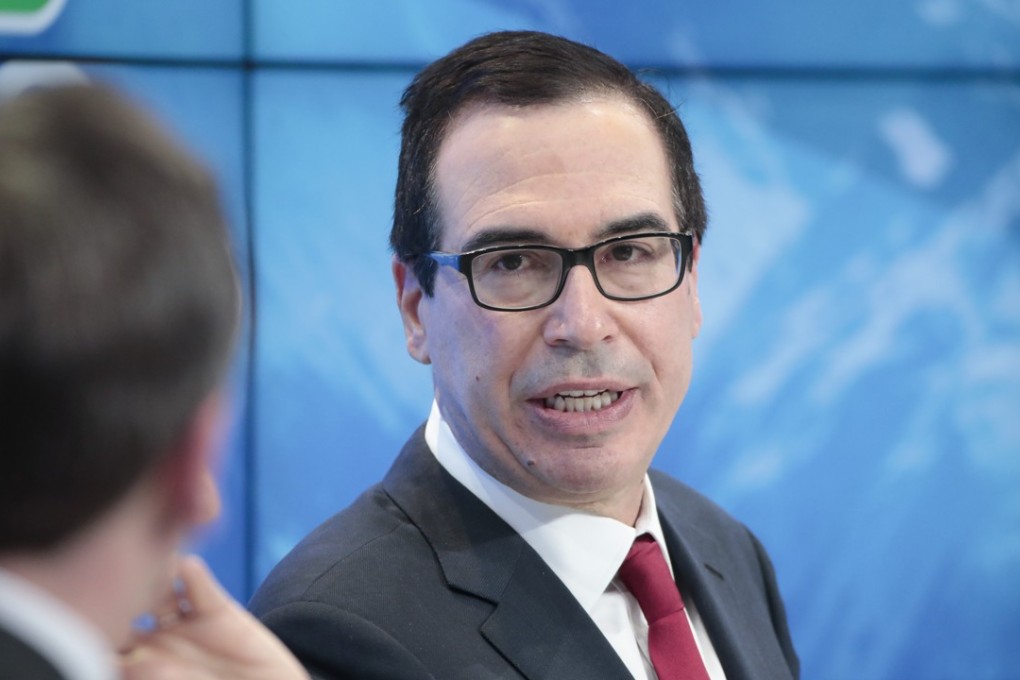Donald Trump adds his voice to US currenct uproar, saying unlike treasurer Steve Mnuchin he wants a ‘strong dollar’
Mnuchin’s remarks in Davos shoved the dollar to a three-year low and sparked worries over a possibly ruinous currency war

President Donald Trump waded into the uproar over the US currency Thursday, saying he wants to see “a strong dollar,” after comments by his Treasury secretary apparently signalling the opposite sent the dollar plunging to three-year lows.
In comments to CNBC, Trump said Steven Mnuchin’s remarks a day earlier, which seemed to favour a weak dollar to help US exporters, “were taken out of context.”
“Ultimately, I want to see a strong dollar,” Trump said, speaking on the sidelines of the World Economic Forum in Davos, Switzerland.
Trump’s comment sparked a rally in the greenback which had hit a three-year low against the euro earlier in the day, although it was still off about 11 percent from before Mnuchin’s remarks on Wednesday.
“I think they were taken out of context, because I read his exact statement,” Trump said about Mnuchin.